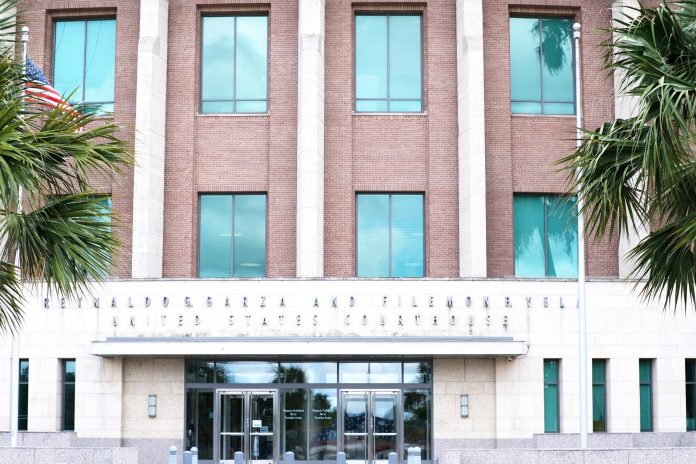
A federal judge has signed an order agreeing the embezzlement case against the president, CEO and finance director for International Education Services or IES is “complex” and has pushed back their trial date to January.
U.S. District Judge Fernando Rodriguez Jr. signed the order Thursday, which amends the hearing schedule in the case against Ruben Gallegos Sr., Ruben Gallegos Jr., and Juan Jose Gonzalez.
The trio face theft and embezzlement charges that they are accused of committing during the time they worked and operated the International Educational Services or IES for migrant children.
According to the amended scheduling order, all motions in the case must be filed by Dec. 8 and responses by Dec. 15. A motion hearing before Rodriguez is scheduled for Dec. 20, with final pretrial conference set for Jan. 10.
Jury selection is scheduled to begin Jan. 17.
The order also states the parties must “engage in timely plea negotiations” and that the final pretrial conference date “is not a date to secure a plea agreement and review it with the defendant-client.”
Their earlier scheduling order had their trial scheduled to begin Nov. 7.
Gallegos Sr., Gallegos Jr., and Gonzalez were indicted on the charges in August. Count one of the indictment charges them with conspiracy. Count two charges them with theft concerning programs receiving federal funds.
Among the charges and according to a portion of the indictment, Gallegos was paid salaries way over the $183,000 cap limit with his 2017 salary at $435,416.88.
The indictment also states Gallegos Sr. was paid $506,0032.22 and Gonzalez $377,060.96 — also in violation of the salary caps — but their names are redacted in the document.
The IES contracted with the Unaccompanied Alien Children Program and provided temporary shelter care and other related services to unaccompanied alien children, according to the federal indictment.
IES received almost all of its funding in the form of federal grants, and for each fiscal year from 2014 through 2018, it received millions of dollars in federal grant funds.
Gallegos Jr. served as CEO of IES from 2014 to 2018, Gallegos Sr. as president, and Gonzalez as finance director until the federal government decided it would not renew its funding for the IES shelter.
In another ordered signed Wednesday, the government is to provide attorneys for the men, the list of witnesses, the identity and home address of informers or cooperating individuals “whose information law enforcement officers relied upon in connection with bringing charges against” the defendants.
In addition, the government should “make available the full and complete criminal record of each witness the United States is likely to call in its case in chief at trial.”
The government must also disclose and “make available for inspection, copying, or photographing any agreement between the United States and a witness the United States is likely to call at trial” to the attorneys representing the men, the order states.
The government states the case against Gallegos Sr., Gallegos Jr. and Gonzalez is one that is quite “complex “and involves fraud loses that will exceed $9.5 million.
The government has obtained thousands of documents during the investigation, and during discovery, it will have to review bank records, property records, grant proposals, grant awards, budgets, audit reports, tax records, employment records, leases, e-mails, and written correspondence.
The government estimates the trial will take about two weeks and anticipates calling about 30 witnesses from various agencies. Some of these witnesses may live out of the area.
All three have pleaded not guilty to the charges and are out on bond.
If found guilty on count one of the indictment, each man faces five years in federal prison, and/or a $250,000 fine and three years supervised release. If found guilty on count two of the indictment, they face up to 10 years in federal prison, and or a $250,000 fine plus three years supervised release.




